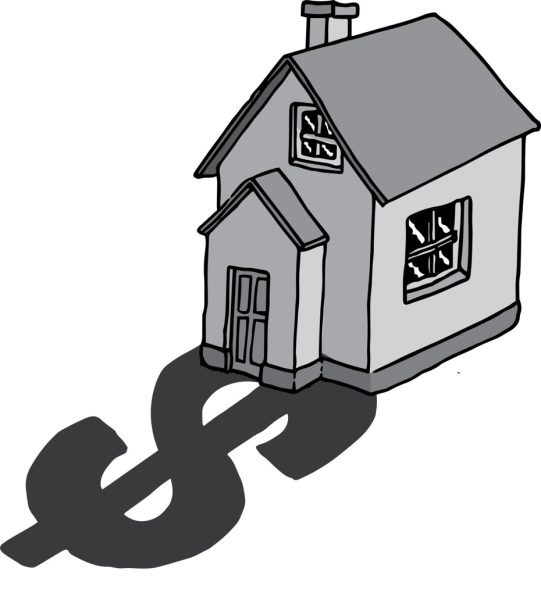The inevitability of the impending housing crisis
November 5, 2020
COVID-19 is one of the most unprecedented events that has affected the global community in the last century. Because of this, it has rightfully been given much press coverage within the last months. However, there are many other looming issues that have been overlooked and pushed aside. We all want to “get back to normal,” but soon enough we will be hit with the full brunt of the rental housing crisis that has been ignored, pushed aside and labeled as “secondary to the global pandemic.”
Not only has the housing crisis been ignored, it has also been exacerbated because of the pandemic—not to mention the mishandling of the pandemic on the part of the U.S. government.
Before the pandemic, economist Andrew Dumont calculated that 46.8 percent of U.S. renters spent more than 30 percent of their income on housing. Not surprisingly, the lowest-income quintile of households were hit the most, spending more than half of their income on rent. A housing crisis has long been looming because of massive rent prices — even before COVID-19 caused a mass shutdown of our economy, mass layoffs and an unemployment rate that has steadied to about 7.9 percent (equating to 12.6 million people unemployed).
While the CDC and legislative branches have responded with a first-round stimulus bill and a moratorium on rent until Dec. 31, there is still a question that must be addressed: What happens “when we get back to normal” and rent is due on Jan. 1? Or more specifically, what happens when tenants are expected to pay the rent that they couldn’t afford during the moratorium period?
That’s right. The moratorium is not governmental aid but instead is simply a delay of the inevitable. It somehow assumes that the minute the pandemic is “over” (whatever that means), most households will be able to cover their rent. That is simply not the case.
The moratorium itself also has major issues. The process of appeal is time-consuming and requires applicants to meet multiple standards. First, you need to show that you have used your “best efforts” to obtain other forms of government assistance. You also need to show that you are experiencing a substantial loss, such as losing income, being laid off or incurring large amounts of medical expenses. You also have to show that you are trying to make payments on time, and that eviction would lead to homelessness or a lack of safe housing.
All of these requirements leave much room for judicial interpretation. Many people are at the whim of their judge’s decision on appeals, which makes your safety incredibly dependent on where you live and what type of judge you are assigned to.
The moratorium also grants no financial backing or assistance to landlords, causing many to take their tenants to court. This will lead to many landlords themselves struggling to survive during the pandemic. This is especially concerning for landlords who have few properties. They are, as urban economist with the Brookings Institution Jenny Schuetz said, the “real estate equivalent of a family-owned small business.”
None of this is to say that we should try to reopen our economy, which is a popular proposed solution. Capitalism is not a magical solution to financial crises. The solution is simple: We need to do more than delay the inevitable wave of evictions due to financial instability. A moratorium cannot address the looming eviction crisis that we can see on the horizon of future “normalcy.”
We need true economic reform, such as rental assistance, universal basic income and more stimulus checks. Rental assistance would allow landlords to make their mortgage payments and keep their businesses functional. It would also secure housing for people who have been the most affected by the pandemic. With this said, we are starting to see that many of the solutions to the pandemic will ultimately create future problems without governmental assistance. We must proactively look for solutions to the future crises that will be waiting for us if we “return to normalcy.”







